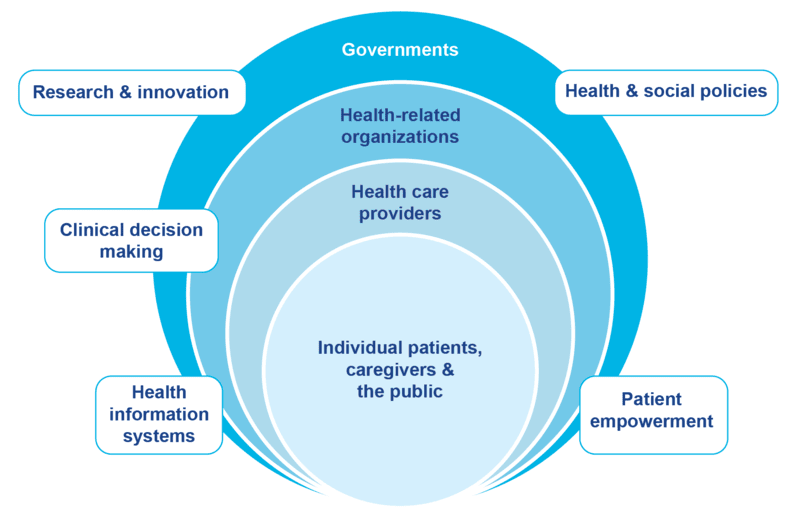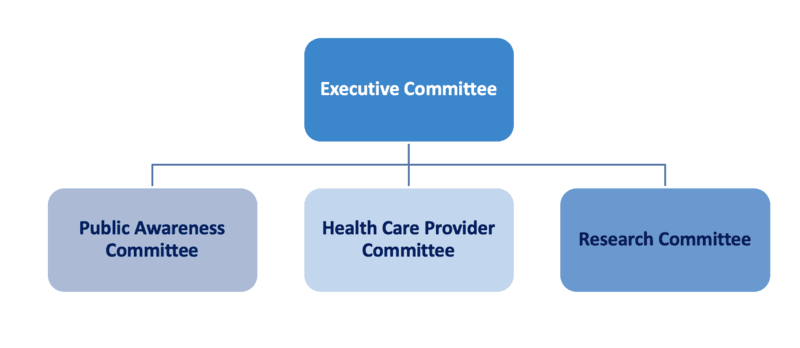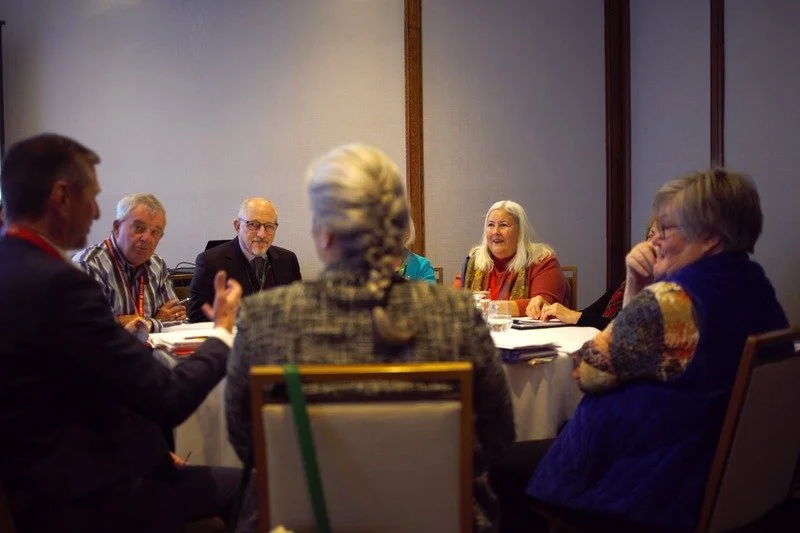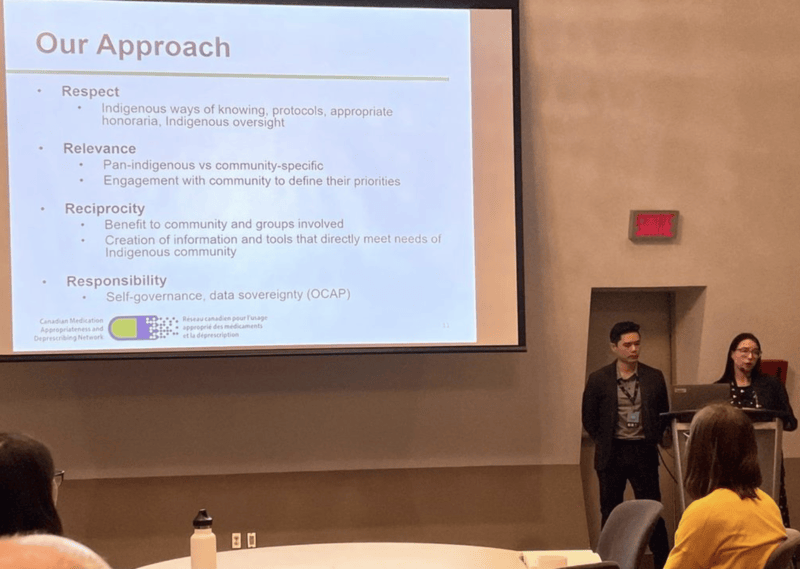The Canadian Medication Appropriateness and Deprescribing Network
OUR MISSION
The Canadian Medication Appropriateness and Deprescribing Network (CADeN) is a group of people with lived experience, clinicians, educators, policymakers, and researchers. We work together to produce, share, and apply information to promote the safe and appropriate use of medications.
Medication appropriateness is when patients receive the right medication, at the right time, at the right dose, and for the right reasons.
Deprescribing is part of appropriate medication use. It is the planned and supervised process of reducing or stopping medications that may no longer be of benefit or that may be causing harm. The goal is to reduce medication burden and harm, while maintaining or improving quality of life.
OUR APPROACH
The Canadian Medication Appropriateness and Deprescribing Network uses a practical, comprehensive, ecological approach to optimize medication use through coordinated action across Canada’s health system. The figure below shows the various stakeholders involved in the network and their roles.
More information on the Network’s approach can be found in a Canadian Journal on Aging publication from 2017.
OUR STRUCTURE
The Canadian Medication Appropriateness and Deprescribing Network is led by an Executive Committee whose role it is to set a strategic direction. Three different subcommittees operationalize the different components of the strategic plan and report to the Executive Committee.
Executive Committee
The Executive Committee sets the strategic direction for the network and is responsible for overseeing how this strategic planning is implemented. The Executive also ensures collaboration and communication between the network’s various committees. It is composed of the network’s executive and scientific directors, the chairs of the network’s Public Awareness, Health Care Provider and Research committees, a patient partner, as well as several members with specific appointments based on needs and expertise.
Public Awareness Committee
The network’s Public Awareness Committee members are patient safety advocates and champions of seniors’ and community issues in their respective provinces. This committee comes together to share their ideas and initiatives, as well as to develop and spread tools and information about medication overload and deprescribing in communities across the country. A primary goal of their public education work is to promote informed medication safety conversations between members of the public and health care professionals.
Members provide guidance and participate in the development and implementation of tools, resources and events for the public, as well as in strategies to meaningfully engage patients in research.
Click here for the list of Public Awareness Committee members
Health Care Provider Committee
Members of the Health Care Provider Committee are medication safety champions representing diverse health care professions, including medicine, nursing and pharmacy as well as allied healthcare professionals. By developing and distributing tools and information, the committee aims to improve healthcare providers’ knowledge and competency in the area of safe and appropriate prescribing. This includes the safe deprescribing of medications that may be risky or unnecessary.
The committee is devoted to working with educators to integrate deprescribing knowledge and competencies into the curricula of health care professional training programs, particularly nursing, pharmacy and medicine.
Click here for the list of Health Care Provider Committee members
Research Committee
The Research Committee’s goal is to set, lead and promote a medication appropriateness and deprescribing research agenda across Canada. Importantly, members help identify knowledge gaps, advances or opportunities in medication appropriateness research for the network. Members collaborate to develop clinical trials, apply for grants, create a welcoming environment for early-career researchers, and disseminate research findings. Research committee members are self-identified academic researchers with a focus on the safe and appropriate use of medications, as well as trainees with an interest in exploring an academic career in medication appropriateness research.
Indigenization Working Group
The Indigenization Working Group (IWG) was formed in the fall of 2023 with the mandate to develop a 5-year action plan to decolonize and Indigenize the network. In addition to advising and leading CADeN’s work to weave Indigenous ways of knowing, thinking, being, and doing into the structure, processes, goals, and projects of the network, the IWG aims to build respectful, reciprocal relationships and partner with Indigenous Peoples, communities, health organizations and health care professionals. One of the goals of these efforts is to co-produce research and resources that promote the safe and appropriate use of medications, in the context of supporting Indigenous patients’ right to holistic care.
Learn more about our work by reading our annual reports or by watching this video!
The Canadian Medication Appropriateness and Deprescribing Network has been made
possible through a financial contribution from:
A special thanks to
*The views expressed herein do not necessarily represent the views of the Canadian Agency for Drugs and Technologies in Health o/a Canada’s Drug Agency.











